







Welcome to “Up Close & Personal.” For every interview I will be introducing a literary personality discussing his views and insights, as well as upcoming literary events around the world.
Today’s interview is with Neal Shusterman. His book ‘Everlost’ is currently being adapted for a feature film by UNIVERSAL STUDIOS. His bestseller book ‘The Schwa Was Here’ is being made into a DISNEY CHANNEL MOVIE. Mr. Shusterman has also written episodes of the popular Goosebumps television series as well as Nickelodeon series, Animorph.
EI: Would you share some early insight into who you were as a teenager with your fans? What were you like as a teen? Please tell us more about Neal Shusterman -- the man behind the author.
NS: I guess I was a pretty typical teenager. As a student, I was kind of a self-sabotaging over-achiever. I always did good work – but always managed to turn it in a day late – or write everything but the writing prompt. I did well in classes where I liked the teacher, and poorly in ones that I didn’t regardless of the subject. I was always into creative things – art, writing, music, acting. Athletically, I kind of missed the boat when it came to most team sports, but excelled at tennis, and swimming. I went on to swim in college. It was during college that I really got interested in writing stories for teenagers, because I worked at a summer camp each summer, and got to be known as the camp storyteller. I had to come up with stories, and I really enjoyed it.
EI: When you look back on your enormously successful career, is there anything you would've done differently? If so, what and why? If not, how do you manage to move forward without regrets?
NS: No one who is successful thinks they’re successful ENOUGH. I know I laughed when you wrote “enormously successful career.” Who me?
Things I would have done differently? Very difficult to say, because who knows what lies down the road not taken. If I put more time into film, would I be a big-time film director? If I wrote adult, would I have a larger audience? If I forced myself to stick to a single genre, would I be better known, with more bookstore shelf space if somewhat limited in scope and style? I suppose rather than regrets, I have frustrations. I get frustrated when a project doesn’t sell, or doesn’t do as well as I would like it to. I get frustrated when I look back on the day, and feel as if I’ve wasted time that could have been better spent. But that’s all a part of life!
EI: What would you like to say to writers who are reading this interview and wondering if they can keep creating, if they are good enough, if their voices and visions matter enough to share?
NS: You’ll never know unless you try. For me what got me writing was that I simply loved it. I couldn’t NOT write – even if nothing ever sold, it’s just a part of who I am. If it’s inside you like that, it doesn’t matter what the world thinks – you’ll do it anyway – you have to. And if the world “gets it,” all the better!
EI: Do you express your inner self in your writing or do the personas you create exist only in your imagination?
NS: When you’re a writer, the characters come from you, so I think it would be foolish to think that they’re not a part of you. The things my characters think about, I’ve thought about. The way they grapple with a situation is exactly the way I would, if I were that person, in that specific circumstance. Even if I’m writing a villainous character like Cedrick in Red Rider’s Hood or Cassandra, in Full Tilt, I put myself in their shoes, try to see the world the way they see it, and then make their choices as if I were them. That’s particularly evident than in the character of Mary in Everlost – who justifies everything she does so well, you can ALMOST side with her... With my heroic characters, it’s really wish fulfillment. “If I were him or her, this is how I’d rise above adversity, and triumph.” It’s all about BEING your characters, so you can’t help but put yourself into them, and take a bit of them with you when you’re done.
EI: Many writers describe themselves as "character" or "plot" writers. Which are you? And what do you find to be the hardest part of writing?
NS: I think I’m more of a “Theme” writer. I say that because, I might have a fun character I wan’t to write about, like The Schwa in “The Schwa Was Here,” or I might have a really exciting idea, as in my upcoming novel “Unwind,” but it’s not the plot or the characters that motivate me to write the book. What motivates me is the underlying question – the underlying idea that I’m exploring. I say question, not “message” because I don’t like to give messages. The way I see it, the only questions worth asking don’t have simple answers, and I don’t want to pretend to have all the answers. I do like to pose unique, and thought-provoking questions, though.
EI: Are you armed with notebook and pen at all the times? Do you always carry your laptop or PDA with you to write?
NS: I always have my notebook, I always have my laptop, and always have a micro-cassette recorder, so if I’m stuck in traffic, I can dictate into it, then transcribe it later. I usually write long-hand, mainly because it forces me to have to rewrite it as I’m typing it into the computer.
EI: You are well known in the writing community as an award-winning author, a successful screenwriter, and television writer. Your books have received many awards from the International Reading Association, and American Library Association. One of your recent books has been sold to Universal Studios to be made as a feature film. Do you ever feel pressure or insecure, or are you able to separate all that from your own creative process?
NS: Every writer has a level of insecurity. That little voice inside that says “What if this is the book that nobody likes?” But you just deal with it, and get over it. You can’t let that insecurity stop you. As for pressure, the pressure is constant – mainly because I always bite off more than I can chew – but I guess it’s better to be busy than not.
As for separating business from creativity, that’s very difficult, and I find myself constantly struggling to find time to write, as the “business” end of things can take up 110% of your time, leaving you with no time to write, (and 10% of the business work that didn’t get done on top of it!) For me, my best writing gets done when I go on writing retreats, and can get away from everything that would otherwise take my attention.
EI: Has there ever been a character in one of your novels that people clamored to see again, but you just didn't want to bring back? If so, which character?
NS: There are a lot of those. People want to see the Schwa again – but even though I’m writing “Antsy Does Time,” which is a sequel, the Schwa’s not in it – it’s another story told by Antsy. People want to see the characters in Full Tilt again. The thing is, in most of my stories, the main characters have gone through the big live-changing event that will change them forever. Once they’ve gone through that, there’s not much more to tell about them. No story will ever live up to the original, and I don’t want to write a sequel just for the sake of writing a sequel. If I write one, I have to be as passionate about it as I was when I wrote the original.
EI: Who is your favorite character to write about? Who is your creepiest?
NS: Antsy, from The Schwa was Here my favorite character to write. He has such a fun, quirky voice. He’s also one of the hardest to write, as well, because he’s always so unintentionally funny. It’s hard to do that! Creepiest, I would say Mary and the McGill in Everlost, and Okoya in Thief of Souls. The whole “Star Shard” trilogy (Scorpion Shards, Thief of Souls, and Shattered Sky), have some of my deepest, and most troubled characters – and yet some of my most heroic characters as well.
EI: When you look back at your work, do you have a favorite lines or sections in each of the books?
NS: Yes, there are quite a few favorites. In Downsiders, my favorite is the opening of the chapter “The left half of Memory,” which begins with an omniscient aside – sort of a mini-essay about the nature of cultures, and conquest. In Full Tilt, the chapter where Blake must relive the bus accident over and over, until he can remember how he survived. In Everlost, the opening of the chapter “The Forever Places,” which is also an omniscient aside, that, with great respect and reverence, tells of places that have left such a mark on our memories, and are so beloved, that they can never truly be lost – like the World Trade Center. That’s just a few.
EI: Would you describe yourself as a confident writer, always ready to face the next new challenge? Or do you have to psyche yourself up to try different venues?
NS: Trying something new is what excites me, and part of what motivates me. If I have to do something that is NOT fresh, that’s when I get worried, because I find it harder to motivate myself if the prospect of uncharted territory is not part of the equation. For that reason sequels are very difficult for me. Even though the characters and relationships are already in place, my own enthusiasm is often less than if it were something totally new, so it’s harder to write. On top of it, I will never be satisfied with a sequel, unless I feel it is equal to, or better than the original, so it’s even more daunting a task.
EI: How do you choose which chapter or pages to read from your book when you do a book appearances?
NS: Easy: I always read my favorites!
EI: Now let’s shift gears for a second....What was the inspiration for your novel ‘ Everlost?’ What is your response to the public perception about your creative insight with your book?
NS: My initial inspiration was the simple concept of two kids bumping into each other on their way to “the light” at the moment they die. That led to the idea of a “world between life and death.” It was very compelling for me, because in this particular world, there were no adults, no fear of dying, and you can’t feel physical pain. With the “rules of existence” changed like that, I was really intrigued as to what I could do within those parameters. It was an idea I had for a while, but the heart and soul of the story came when I realized that The World Trade Center would be in Everlost, and there, the towers would stand forever, and nothing will ever bring them down. That’s when I knew I had to write it.
EI: How much of Nick & Allie is planned out in your head? How do you know where you will go next with their characters? What was your biggest challenge in creating them?
NS: My biggest challenge in creating Nick and Allie was to keep them pro-active, rather than reacting to the events around them. Nick was a bit harder than Allie, because, between the two, Allie is more of a leader. The biggest challenge in the book, however, was reigning in the rules of this world, and making them clear. When you create a “natural law” within a fantasy world, it impacts everything. For instance, in Everlost, the characters, who are basically ghosts in our world, sink into the earth if they stand in the same place. Even a rule as simple as that opens up a can of worms: Your characters have to keep moving. They can’t drop things, or they sink as well. What happens to kids who DO sink? Could other characters push you down? Are there certain places where they won’t sink? Do you sink faster into wood than you would into a steel floor? What would happen if you tried to cross a bridge? If you sink in “solid” ground, how fast would you sink in water? Would the whole idea of sinking be a pivotal issue for one, or more of the characters? With every single rule, you have to deal with dozens of ramifications, you have to make them all work, you have to be consistent, AND you have to make it look easy.
EI: How did you develop these characters? Did you work them out in advance, or did they evolve as you wrote the story?
NS: They always evolve. All I knew when first began conceiving of the story, is that I’d have a girl and a boy from modern times, and a slightly younger boy, who was an innocent, from a hundred years ago, who never left his forest. I also knew I’d have a monster. Once I set the “sinking” rule, I decided the monster would be a kid who sank to the center of the earth, and clawed his way back to the surface. Then I needed a know-it-all, who could help explain the rules of Everlost. That became Mary, but as she developed, I realize that she was the character around which everything else revolved. I also knew that she and the monster had to have some history. Discovering the characters as you go along is one of the most exciting parts of writing.
EI: How do you imagine your audience as you are writing?
NS: First and foremost I write a story that excites me, and that I feel needs to be told. I try to pretend that the book is somehow “important” in the grand scheme of things. I know it’s just a book – but when you’re a writer, if you can convince yourself that your work is somehow meaningful, you rise to the occasion, and maybe it becomes meaningful in its own small way. On the other hand, if you tell yourself “I’m just going to write junk so I can pay the bills,” then junk is exactly what it’s going to be. My goal is to write a story that works on many levels. Younger kids can appreciate it, as well as teenagers, and adults. I want the stories to resonate within every reader, regardless of their age. I often have adults come up to me and say “if this is a young-adult novel, then I must be a young-adult.” I only wish that more adults could realize the books speak to them, not just to kids.
EI: You also wrote under the pseudonym name ‘Easton Royce’ when you wrote your X-File books which you collaborated it with Eric Elfman and Michelle Knowlden. Could you share with us about your other pen names?
NS: I came up with Easton Royce as a name to use when I was collaborating, or if I was working on a project that was not original – such as writing novelizations of episodes of the X—Files TV show. The idea was to create a “mass market” persona for writing stuff that was less literary. The “pay the bills” stuff that would go directly to paperback, and not get reviewed. I haven’t used the name much. I guess I like being myself a whole lot better!
EI: Who are some of the authors you keep returning to as a reader because of their ability to create vivid, three-dimensional characters?
NS: Orson Scott Card, Jerry Spinelli, John Irving, to name a few. There are very few “best sellers” that I like to read anymore. Of course I used to when I was growing up, but I’ve become a very impatient and unforgiving reader. If the book follows a familiar formula, and the characters and style feel too similar to other books I’ve read, I lose interest very quickly. The only books and authors that excite me are the ones that leave me saying “Wow! I wish I had thought of that!” I tend to find myself reading authors I’d never heard of before, rather than ones I’m familiar with. I’m excited by new voices – or at least voices I’ve never heard before!
EI: What would you tell those authors considering applying to an M.F.A. program? In your opinion how important is it for a writer to have a writing degree?
NS: I don’t have a writing degree - but I did study with Oakley Hall, who ran the MFA writing program at UC Irvine – but I was an undergraduate majoring in theater and psychology. Basically I took every creative writing course the school offered, and when there weren’t any more to take, did independent study with Oakley. I’ve heard both good and bad things about MFA writing programs. The pitfall can be a tendency toward being so esoteric and so literary that it becomes pretentious. On the other hand, MFA programs have turned out some of the finest contemporary writers in the world. The way I see it – anything that gets you writing, and teaches you the art of critiquing, and ACCEPTING criticism is time well spent. Anything that exposes you to a vast variety of writing styles, and ideas is also time well spent. Whatever your life experiences are, those will flavor your subject matter, and your treatment of it. There’s no one path to becoming a writer – but an MFA program is definitely an option that will lead you in the right direction.
EI: Mr. Shusterman, thank you for contributing to my blog. It has been a pleasure for me to get to know you, and your work a little better. Would you like to end your interview with a writing tip or advice for young aspiring writers?
NS: Four things I always tell aspiring writers:
1) Write. You can’t get better unless you do it, and do it a lot. In fact, it needs to be a part of your life that you can’t live without. If you want to be a writer, but don’t find yourself filling up page after page after page, then maybe you like the IDEA of being a writer more than you really want to be one.
2) Rewrite. Nothing is ever done the first time you write it, or the second, or the third. You have to learn the skill of listening to constructive criticism, and using that criticism to improve your work. This is the most important part of the writing process. Show me a writer who “gets it right” the first time, and I’ll show you a writer who threw away the opportunity to make their work as good as it could be.
3) Read. You can’t be a writer unless you’re an avid reader. Like anything else in life, we learn by imitation, and by seeing how others do it. We learn how to evoke emotions, how to balance action, dialogue, description, and introspection, through reading how others do it. We develop our own styles by internalizing the styles of authors we’ve read, and synthesizing something new, that ultimately becomes our own.
4) Persevere. There are many talented writers out there. The ones who become successful are the ones who are relentless in pursuing their craft, in spite of disappointment, and things that might otherwise discourage them.
To learn more about Neal Shusterman, please visit him at:
http://www.storyman.com/
http://www.myspace.com/nealshusterman
Photo of Mr. Shusterman (Color) By Scott Hensley, Henderson, NV.







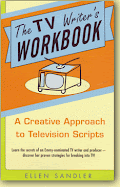



.png)



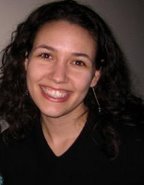
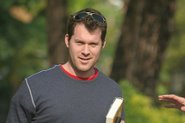

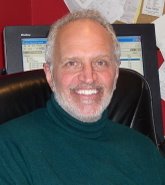
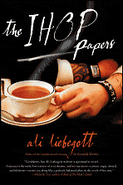
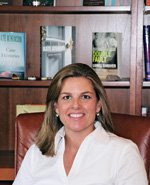
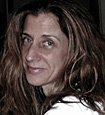
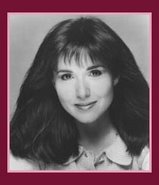






2 comments:
Reading Shusterman's interview has definitely made me excited for his arrival at my school tomorrow! Sometimes it is hard to believe that authors are down-to-earth, real people, but no doubt resides in my mind that Neal Shusterman is a great author and a great person.
Reading Shusterman's interview has definitely made me excited for his arrival at my school tomorrow! Sometimes it is hard to believe that authors are down-to-earth, real people, but no doubt resides in my mind that Neal Shusterman is a great author and a great person.
Post a Comment